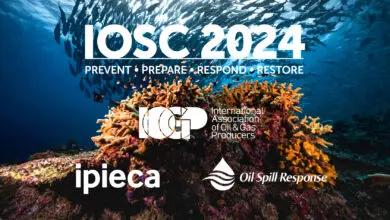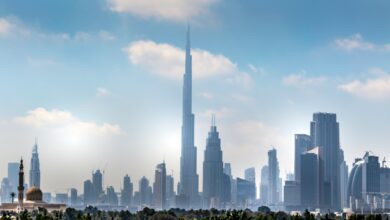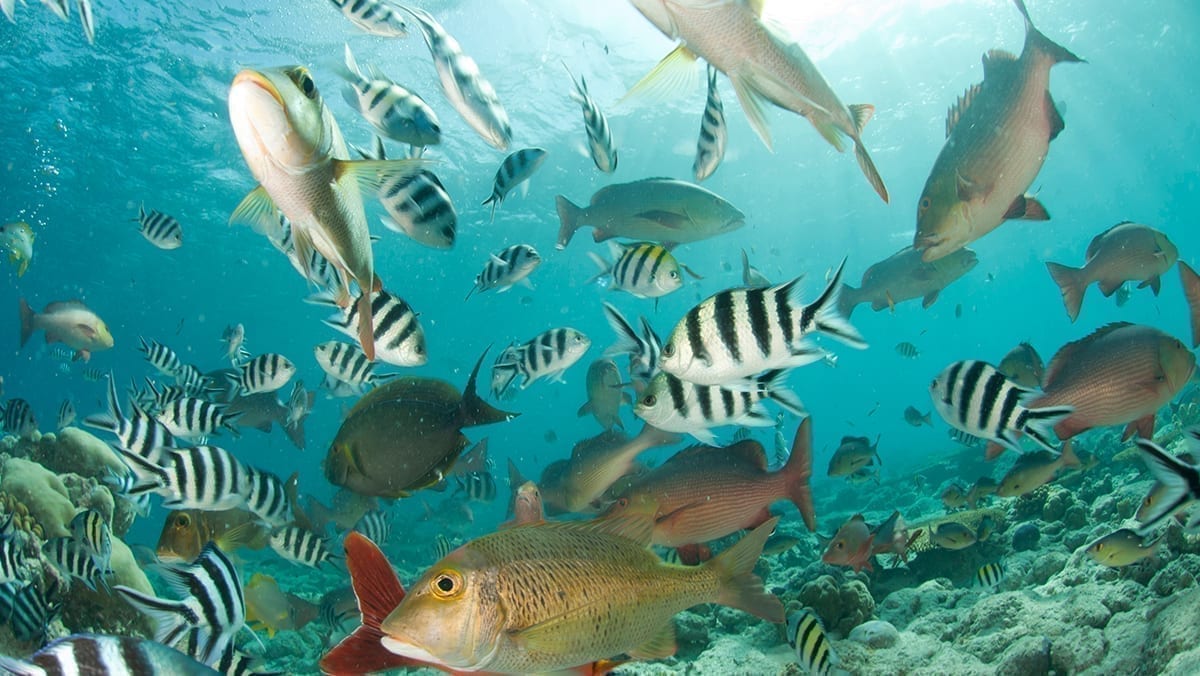
Oceans of possibility
How IOGP is contributing to ocean science
The ocean is our planet’s largest ecosystem. It stabilizes climate, stores carbon, produces oxygen, nurtures unimaginable biodiversity, and directly supports human wellbeing through food, mineral, and energy resources, as well as providing cultural and recreational opportunities. Unfortunately, much of the ocean is now seriously degraded, and as a responsible sea user, IOGP is working to help the industry play its role as part of the solution.

What threats does the ocean face?
In a long list of threats, climate change arguably presents the greatest threat to ocean health. It is making oceans hotter, promoting acidification, and reductions in dissolved oxygen levels is making it harder for ocean life to breathe.
Overfishing threatens fish stocks. Over 30 percent of fish stocks are estimated to be either fished to capacity or overfished, 33 per cent of fish stocks are classified as overexploited and over 55 per cent of the ocean area is subject to industrial fishing.
Plastic pollution also poses a major threat – more than five trillion pieces of plastic pollution are afloat in the oceans. It injures and kills fish, seabirds and marine mammals, and because persistent organic pollutants in the marine environment attach to the surface of plastic debris, floating plastics in the oceans have been found to accumulate pollutants and transport them through ocean currents.
Invasive species can disrupt the ecological balance within the ocean.
These threats also negatively impact human lives and property. Habitat destruction may result in a loss in commercially or recreationally important marine species, potentially impacting opportunities for exercise, relaxation, or outdoor learning, and the destruction and loss of coastal habitats decreases shoreline protection.
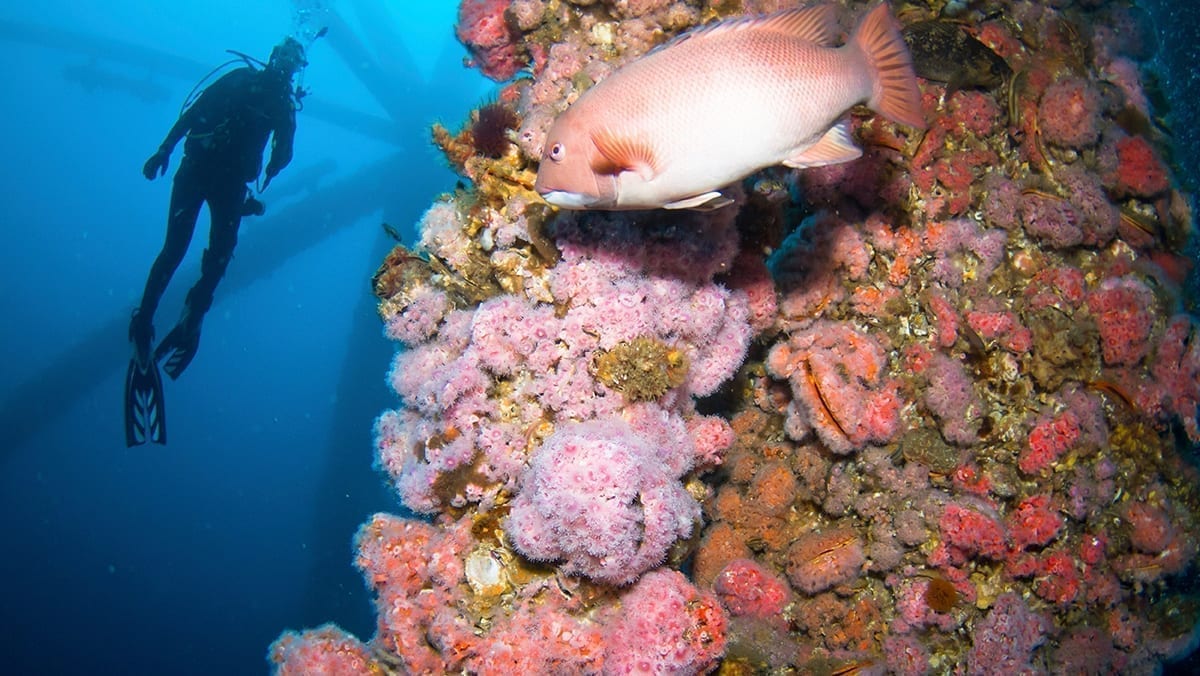
What is IOGP doing?
Improving our knowledge and understanding of the ocean is key to enabling a responsible and sustainable Blue Economy. The next decade (2021 – 2030) has been identified by the UN as the “Decade of Ocean Science for Sustainable Development – a ‘once in a lifetime’ opportunity for nations to work together to generate the global ocean science needed to support the sustainable development of our shared ocean.
“There is a low level of awareness of the role that industry plays in this area, and the many collaborations and partnerships between industry and science,” says Wendy Brown, IOGP Environment Director. “Sound science is the basis of our risk management approaches, and as responsible ocean stakeholders, we have a fantastic opportunity to contribute to the knowledge of ocean health and bring the industry perspective to public policy, building and maintaining strong relationships with governance organisations, engaging with stakeholders to develop future ocean governance.
“For example, we have participated in two workshops convened by the UN Global Ocean Treaty on Marine Biodiversity of Areas Beyond National Jurisdiction (BBNJ) – an internationally legally binding instrument for the conservation and sustainable use of the biological diversity of international waters.” (Click ‘Recent engagement in ocean governance’ for a list of recent engagement activities).
Recent engagement in ocean governance
- UN Global Ocean Treaty on Marine Biodiversity of Areas Beyond National Jurisdiction (BBNJ) – An internationally legally binding instrument (ILBI) for the conservation and sustainable use of the biological diversity of marine areas beyond national jurisdiction (BBNJ) – the ‘high seas’. – IOGP participated in two workshops in January 2020
- UN Decade of Ocean Science for Sustainable Development (2021-2030) – Organised by IOC/UNESCO to support efforts to reverse the cycle of decline in ocean health and gather ocean stakeholders worldwide to work within a common framework that will ensure ocean science can fully support countries in creating improved conditions for sustainable development of the ocean.
A number of new initiatives at global and EU level should be expected. IOGP plans to make a submission to ‘The Decade’ See https://oceandecade.org/ for more information. - 2020 UN Ocean Conference, Lisbon, Portugal (postponed, new date to be announced) – The title of the conference will be Scaling up Ocean Action Based on Science and Innovation for the Implementation of Goal 14: Stocktaking, Partnerships and Solutions.
The conference will propel science-based innovative solutions aimed at starting a new chapter of global ocean action. Solutions for a sustainably managed ocean involves green technology and innovative uses of marine resources, addressing the threats to the health, ecology, economy, and governance of the ocean – acidification; marine litter and pollution; illegal, unreported, and unregulated fishing; and the loss of habitats and biodiversity.
IOGP is accredited to participate in UN Oceans. Until a new date is decided, it is running a series of webinars titled ‘Keeping the Momentum for Ocean Action’.
See https://www.un.org/en/conferences/ocean2020 for more infomation. - UN Sustainable Ocean Business Action Platform aims to mobilize businesses for a productive and healthy ocean. It convenes leading actors from business, academia and Government institutions to determine how ocean industries can advance progress towards the Sustainable Development Goals (SDGs). The platform also builds upon the Ten Principles of the UN Global Compact, which outline business responsibilities in the areas of human rights, labour, environment and anti-corruption.
Its Sustainable Ocean Business Principles is due to be published in June. Total and Equinor have contributed, and IOGP took part in the review and consultation process.
For more information visit https://www.unglobalcompact.org/take-action/action-platforms/ocean
-
- IOGP completed Sprint 1 with the UN Global Compact Task Force related to helping logistics on the seas. It made 14 recommendations to help enable safe passages for seafarers/mariners and offshore/energy related personnel.
The report was presented at the highest level in the UN and various other bodies with a call to action. This was also presented at a UN press conference on the 5th of May.
There are already positive signs that the situation for crew changes is gradually easing allowing people to again travel home to their families after their tours of duty.
- IOGP completed Sprint 1 with the UN Global Compact Task Force related to helping logistics on the seas. It made 14 recommendations to help enable safe passages for seafarers/mariners and offshore/energy related personnel.
-
- IOGP has commenced Sprint 2 with the UN Global Compact. It will look at opportunities arising from the COVID-19 situation and how the seas can be an enabler.
Items like bio-mass, aquaculture and medicine from the seas have been presented thus far. IOGP will present at the next meeting where the focused opportunity will be around sharing of data – the industry has ongoing data initiatives which may be amplified through this group.
IOGP has also worked with various other entities, both with a view to share information and specifically to aid international crew changes.
- IOGP has commenced Sprint 2 with the UN Global Compact. It will look at opportunities arising from the COVID-19 situation and how the seas can be an enabler.
- International Ocean Governance (IOG) Forum – Established by the European Commission, in association with the European External Action Service. This new platform will be an important framework for discussions about ocean policy in the EU and on the international level. The outcomes from the Technical Working Groups will drive EU policy internationally, (e.g. Convention on Biological Diversity, BBNJ), but may also influence EU policy and legislation (Biodiversity Strategy, coordination of Marine Protected Areas, etc).
- The International Ocean Governance Forum will be held in December 2020, with a following conference in spring 2021.
One of IOGP’s key messages is that the industry has tremendous experience in operating in challenging marine environments and can share this knowledge.

Ocean science
Science is helping to build a better understanding of the changes taking place within the ocean, and is vital if declines in its health are to be reversed. Currently, it accounts for only between 0.04% and 4% of total research and development expenditures worldwide.
It is an area where the industry has considerable expertise and resources – and, importantly, access to plentiful and accurate data. Business decisions, safety of personnel, assets, operational activities, and protection of the natural environment are often dependent on having complete, correct, consistent and current information of our operating locations and the surrounding environment which, in many instances, are in the ocean.
IOGP provides strong support to the accurate acquisition, integration, visualisation, management, and analysis of key marine geospatial survey data (these include bathymetric, oceanographic, environmental, seabed geotechnical and geophysical, and marine traffic). This is delivered by the Geomatics Committee through specialist operational and technical guidance, advocacy and knowledge sharing, and maintenance of geospatial, survey and positioning information standards. The relevant areas covered are geodesy, survey and positioning, geophysical operations, geo-information and earth observation.
IOGP also organises and leads data sharing and visualisation initiatives as well as collaborations with leading universities to further the fundamental science of ocean currents, big waves and oceanic meteorology through its Metocean Committee.
Other projects include:
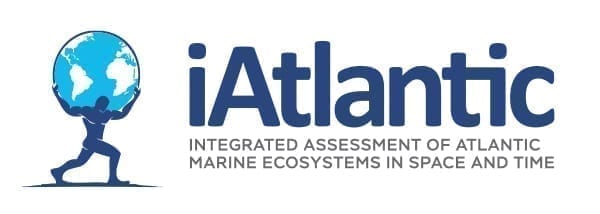
iAtlantic
As an advisory board member of iAtlantic, IOGP helps support innovation and responsible exploitation in the Blue Economy and Blue Growth sectors. This multidisciplinary research programme seeks to assess the health of deep-sea and open-ocean ecosystems across the full span of the Atlantic Ocean.
With 33 scientific partners from Europe, Brazil, South Africa, Argentina, Canada, and the USA and a wider network of associated partners, it will, over four years, carry out more than 30 research expeditions to investigate marine ecosystems and their drivers in all corners of the Atlantic. IOGP has committed to support the iAtlantic project as an industry partner, with members offering to provide access to industry data collected in the iAtlantic study areas and opportunities for iAtlantic scientists to partner on planned future marine surveys.
Find out more at: www.iatlantic.eu/ and on Twitter @iAtlanticEU and @iAtlanticGA2020
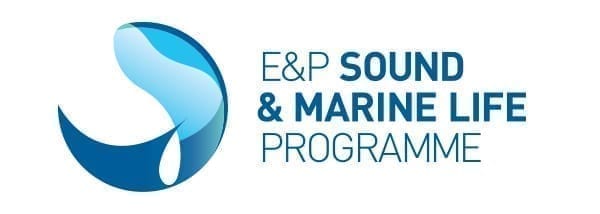
Sound and Marine Life
Launched in 2005, the Sound and Marine Life research programme works to increase understanding of how the sounds generated by exploration and production activity – especially by seismic surveys – can affect marine life. This research helps governments make regulatory decisions based on sound science as well as the industry develop effective mitigation strategies.
This area of research has been studied by militaries, academia, and regulators, but the Sound and Marine Life JIP has the most extensive industry research programme in this field. It identifies, addresses, and answers key questions around the impact of exploration and production activity which have not been tackled systemically by the existing body of science. Working together with multinational groups, subject matter experts, and NGOs, the programme has already committed USD 60 million to research, and has published more than 140 peer-reviewed scientific publications.
Its research topics include understanding how sound travels underwater, possible effects of sound on marine fauna’s physical and behavioural wellbeing, and how sound can be controlled and potential impacts mitigated, and are designed to help keep the programme at the cutting edge of science by developing new tools.
Find out more at: www.soundandmarinelife.org

Environmental Genomics JIP
 Environmental genomics for the characterisation and monitoring of biodiversity is an emerging discipline being developed and implemented by academics, industry, and regulators around the world. It has the potential to provide more complete biodiversity data than conventional methods and is faster and more cost-effective.
Environmental genomics for the characterisation and monitoring of biodiversity is an emerging discipline being developed and implemented by academics, industry, and regulators around the world. It has the potential to provide more complete biodiversity data than conventional methods and is faster and more cost-effective.
The Environmental Genomics Joint Industry Programme (JIP34) was launched in 2019 to coordinate research aimed at exploring the application of eDNA-based analyses in environmental assessments and monitoring of oil and gas offshore and onshore operations.
The programme is initially preparing a white paper that links state-of-the-art environmental genomics with technology development opportunities as related to industry specific applications identified by multiple oil and gas companies to help identify and prioritise the key areas where further research and development is required.
For more information, visit www.iogp-edna.org

Metocean projects
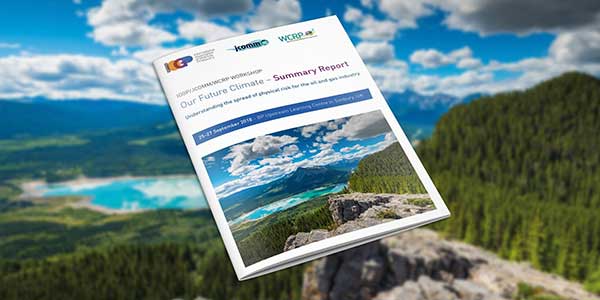 The activities of IOGP’s Metocean Committee primarily cover the study of meteorology and physical oceanography that affect the industry offshore installations. In depth understanding of wind, wave and current, as well as other parameters, such as air and sea temperature, visibility and ice conditions, can have profound impacts on the safety and economics of a new project or existing facilities. Subsequently, the Metocean Committee members fund leading academics and research institutes to answer some of the industry’s biggest ‘oceanographic questions’. In recent years, this has resulted in significant scientific breakthroughs, including:
The activities of IOGP’s Metocean Committee primarily cover the study of meteorology and physical oceanography that affect the industry offshore installations. In depth understanding of wind, wave and current, as well as other parameters, such as air and sea temperature, visibility and ice conditions, can have profound impacts on the safety and economics of a new project or existing facilities. Subsequently, the Metocean Committee members fund leading academics and research institutes to answer some of the industry’s biggest ‘oceanographic questions’. In recent years, this has resulted in significant scientific breakthroughs, including:
- Ground-breaking improvements in the understanding of extreme wave physics, including wave breaking and non-linearity
- Improvements in the understanding and forecasting of large ocean currents, including the Loop Current in the Gulf of Mexico, fundamental to the Gulf Stream current that drives much of the thermohaline circulation in the North Atlantic
- Identification of critical storm characteristics and paths responsible for producing the largest North Sea Storms (and affecting storm surge impacting some of our most vulnerable coastlines)
- Advances in the fundamental mathematics of describing the action of internal solitary waves (Solitons)
Moreover, the IOGP Metocean Committee has funded and directed the development of numerous high-quality ‘hindcast’ products of wave, wind and current in various basins, including the North Sea, Gulf of Mexico, South China Sea and Indian ocean (off North West Australia). They are also responsible for establishing data-sharing networks in data sparse regions such as West Africa. Members deploy and share data from state-of-the-art oceanographic measurement campaigns – in almost every basin. In addition to informing engineering design and operation of assets, the data is used for environmental monitoring and modelling as we as oil spill studies and shared extensively with governmental research organisations and academics.
“An understanding of Metocean is essential for the safe and efficient design and operation of offshore installations,” says Lucyna Kryla-Straszewska, IOGP Metocean and Geomatics Manager. “Understanding both physical risks and vulnerabilities of the oil and gas sector will help IOGP Members develop and implement adaptation strategies to manage the physical impacts of climate change.”
Providing Guidance to industry
In practical ways, IOGP is helping industry to operate responsibly in the marine environment. Its remote sensing guidance advises on the application of new technologies (satellites, manned and unmanned aircraft) for environmental monitoring, guidance on produced water encompasses worldwide operations, and, with IPIECA, it has published a collection of over twenty oil spill preparedness and response guidance reports.
Visit the IOGP Bookstore to explore all its environmental publications.
